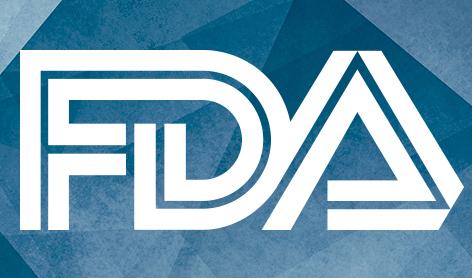Risankizumab Receives FDA Approval for Active Psoriatic Arthritis
On Jan. 21, AbbVie announced the FDA granted approval to their IL-23 inhibitor risankizumab-rzaa (SKYRIZI) for treatment of active psoriatic arthritis in adult patients based on the results of the KEEPsAKE-1 and KEEPsAKE-2 trials.
This article was originally published on HCPLive.com.

The US Food and Drug Administration (FDA) has approved risankizumab-rzaa (SKYRIZI) for the treatment of adults with active psoriatic arthritis (PsA), according to a release from AbbVie.
The inflammatory pathway interleukin 23 (IL-23) inhibitor, which received approval for the treatment of adults with moderate to severe plaque psoriasis in 2019, received approval based on the results of the KEEPsAKE-1 and KEEPsAKE-2 trials.
"In the pivotal KEEPsAKE trials, SKYRIZI demonstrated improvements across a number of psoriatic arthritis symptoms, including joint pain, enthesitis and dactylitis," said Alan J. Kivitz, MD, CPI, founder and medical director of the Altoona Center for Clinical Research and Altoona Arthritis and Osteoporosis Center in Pennsylvania and KEEPsAKE clinical trial investigator, in the aforementioned release. "This approval provides both dermatologists and rheumatologists with an option that helps improve skin and joint symptoms in patients with active psoriatic arthritis, alongside a quarterly dosing schedule that may fit their patients' lifestyle."
This newest indication for risankizumab-rzaa was supported by findings from the pivotal KEEPsAKE-1 and KEEPsAKE-2 trials, a pair of phase 3 studies assessing the efficacy and safety of the therapy in adults with PsA as well as those who had responded inadequately or with intolerance to biologic therapy and/or disease-modifying antirheumatic drugs (DMARDs).
The primary endpoint sought by KEEPsAKE investigators was ACR20 response at week 24.
In both the KEEPsAKE-1 and KEEPsAKE-2 trials, 57% and 51% of patients, respectively, who had received risankizumab achieved ACR20 response—compared with 34% and 27% of patients, respectively, who received placebo.
In key secondary endpoints, more patients on risankizumab demonstrated significant improvements in skin clearance, physical function, and minimal disease activity. The safety profile of the inhibitor was noted to be generally consistent with safety findings in previous studies of psoriasis. As such, serious adverse events occurred in 2.5% of risankizumab patients in KEEPsAKE-1 and 4.0% in KEEPsAKE-2—versus 3.7% and 5.5% on placebo, respectively.
Further, the rates of adverse events leading to discontinuation for those on risankizumab was 0.8% and 0.9% in both trials, respectively. For those on placebo, the discontinuation rates were 0.8% and 2.3%, respectively.
Thomas Hudson, MD, senior vice president of Research and Development and chief scientific officer of AbbVie, emphasized the benefit of a cross-indicated biologic approved for patients with potentially both plaque psoriasis and PsA.
"Patients often do not suspect a connection between their psoriasis skin symptoms and the joint pain, swelling and stiffness they may be experiencing, potentially leading to a delay in diagnosis and treatment of psoriatic arthritis," said Thomas Hudson, MD, senior vice president of research and development and chief scientific officer with AbbVie. "We're proud to expand the use of SKYRIZI to patients with psoriatic arthritis who are living with the debilitating combination of skin and joint symptoms."